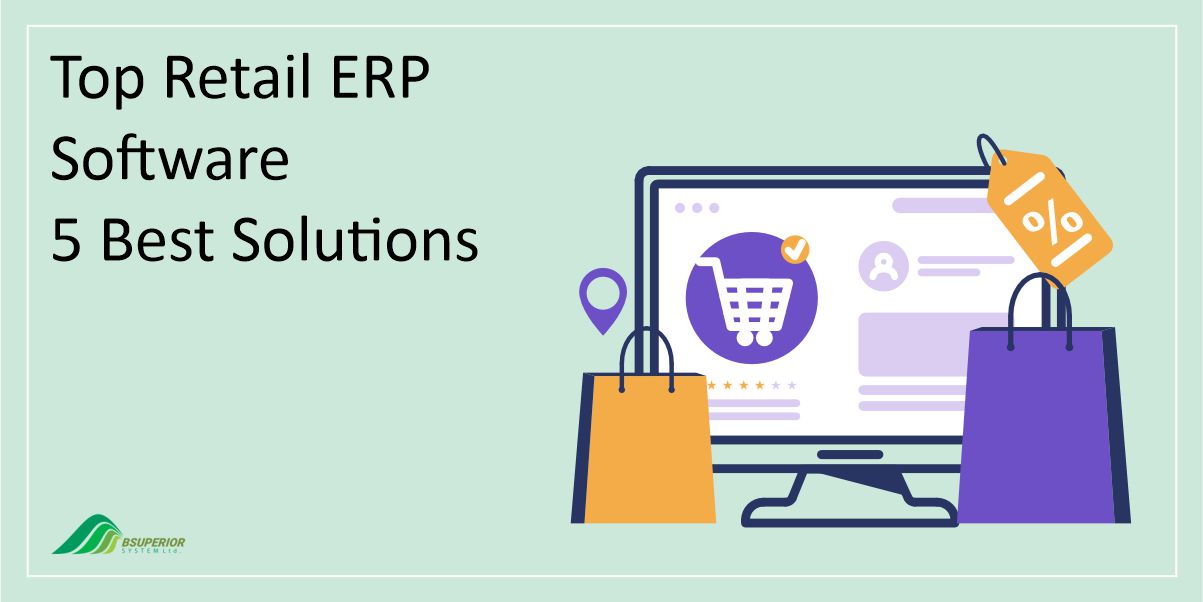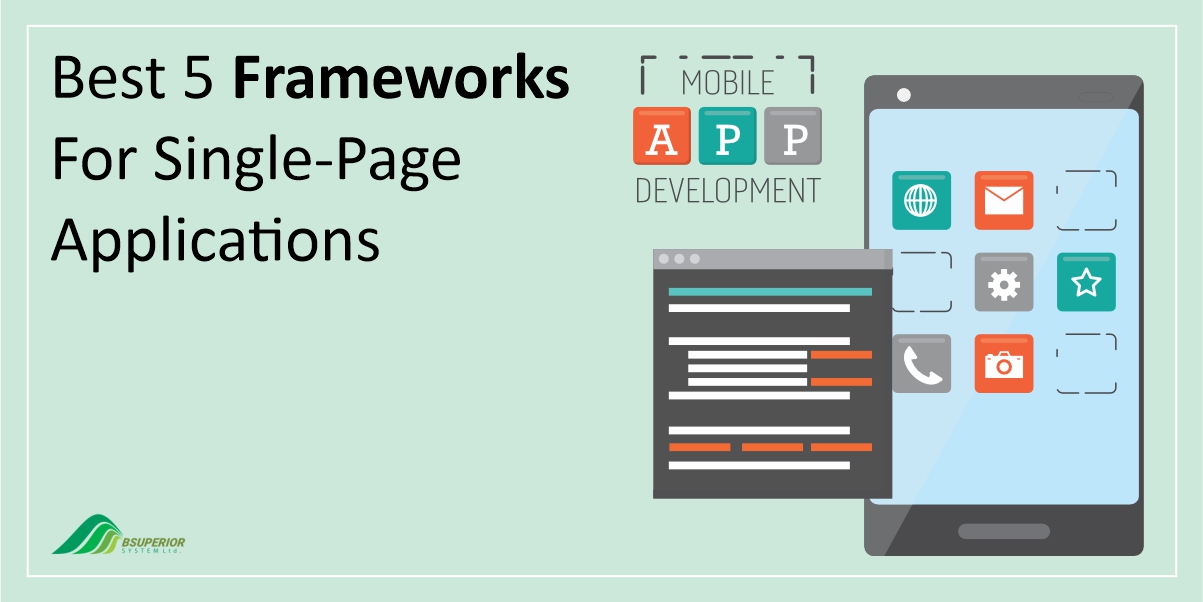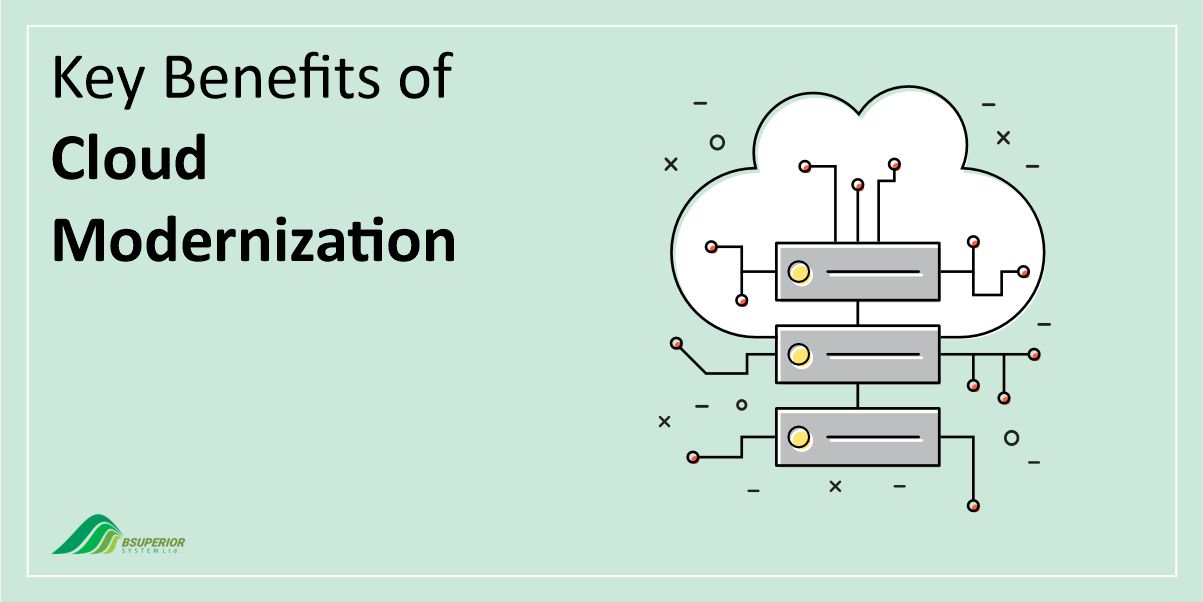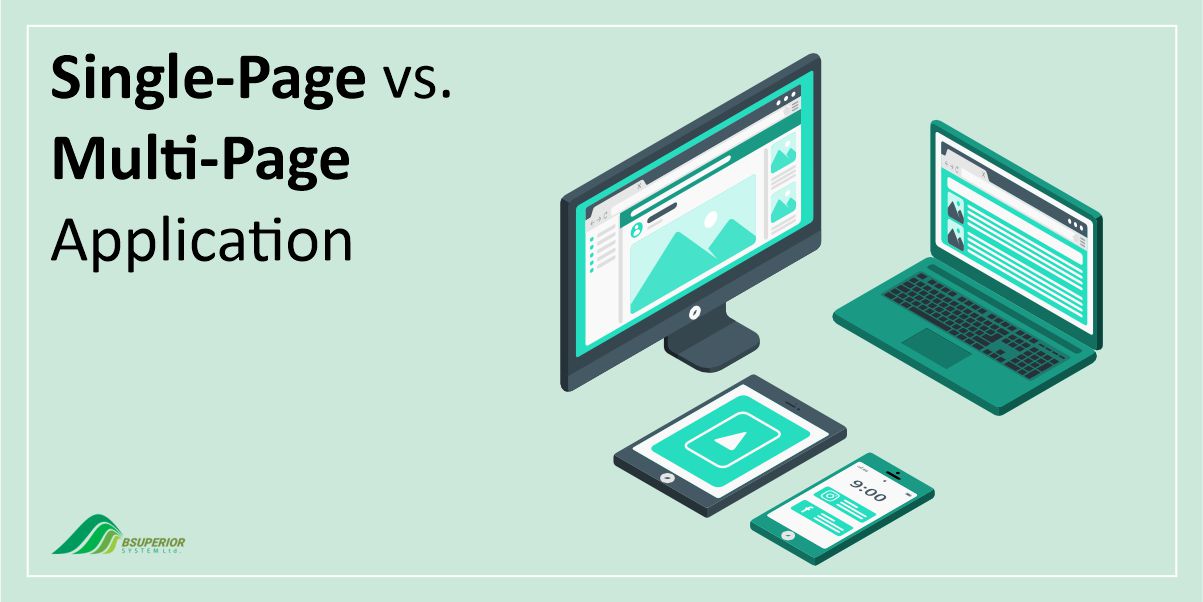A Guide to the 5 Major Types of Enterprise Application Software (EAS)
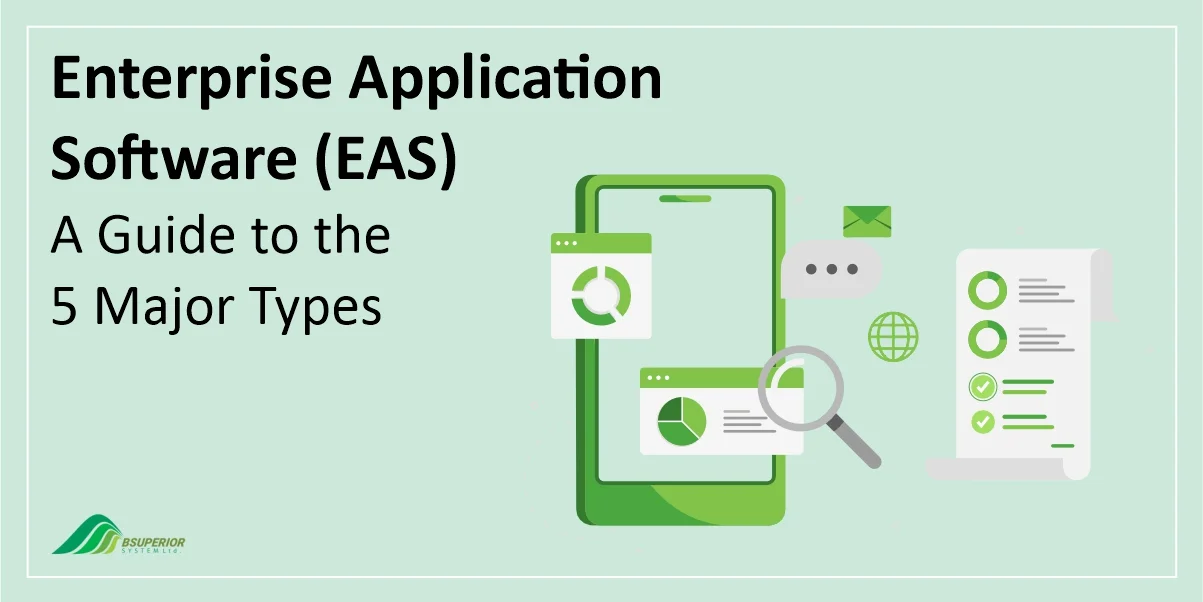
Table Of Content
- What is Enterprise Application Software?
- What are the Features of Enterprise Application Software?
- Why Do Businesses Need Enterprise Application Software?
- Main Types of Enterprise Application Software
- 7 Key Considerations Before Investing in Enterprise Software
- BSUPERIOR – A Perfect Choice For Your Business’s EAS
Regardless of whether it’s a small institution, a large corporation, or a government agency, any organization with a structured framework requires robust software solutions. Enterprise applications play a crucial role in ensuring the stability of operational processes and simplifying asset management. In this blog post, we’ll delve into five major types of enterprise applications and their respective functionalities.
What is Enterprise Application Software?
Enterprise application software (EAS) is a category of digital applications designed to streamline and optimize business operations.
Enterprise software seamlessly connects various departments within a company, fostering a unified approach to achieving organizational objectives.
By adopting enterprise software, businesses can empower employees with crucial customer insights, eliminate redundant data entry, and ultimately enhance overall productivity.
This versatile software encompasses a broad range of functionalities, including accounting, sales, marketing, human resource management, data analysis, payment processing, project management, and custom application development.
What are the Features of Enterprise Application Software?
Enterprise application software can be divided into two types:
- Data Management Software: This category includes tools for visualizing, manipulating, and storing large volumes of complex data.
- Business Process Automation Software: This category includes software that streamlines and automates business processes, ranging from basic support to comprehensive automation.
EAS belonging to both these categories exhibits common characteristics, tailored to meet specific organizational needs. These features are:
- Widespread Functionality: EAS must support the entire organization, regardless of geographical distribution. It should deliver consistent functionality and performance across all locations, including remote work environments.
- Scalability and Robustness: As a foundation for mission-critical operations, EAS must seamlessly scale to accommodate growing business demands without compromising stability or functionality.
- Centralized Management and Administration: EAS should provide centralized control to effectively manage and administer the organization’s critical functions.
- Business Alignment: EAS should align with the organization’s core goals and objectives. It must provide functionality that directly contributes to achieving strategic targets.
- Flexibility and Extensibility: In response to the ever-evolving business landscape, EAS must be flexible enough to adapt to changing workflows without disrupting ongoing operations.
Additionally, EAS should seamlessly integrate with existing software services and platforms through APIs, plugins, extensions, and other means.
Why Do Businesses Need Enterprise Application Software?
In today’s dynamic and competitive business environment, adopting EAS can offer a multitude of advantages. These benefits include:
- Streamlined Workflows: Enterprise software automates various business processes, saving time, reducing costs, and minimizing errors.
- Enhanced Efficiency: By facilitating seamless monitoring of operational efficiency, EAS enables prompt identification and rectification of inefficiencies, leading to improved productivity.
- Boosted Collaboration: Enterprise applications foster effective communication and information exchange between employees. This will result in enhancing collaboration and teamwork.
- Data-Driven Decisions: By simplifying data collection, analysis, and presentation, EAS provides a foundation for informed and strategic business decisions.
- Competitive Edge: The use of modern enterprise software helps the company to react faster and more efficiently to changing market situations, thus boosting its competitiveness.
Main Types of Enterprise Application Software
Enterprise application software is engineered to manage vast amounts of data with exceptional accuracy. Its intricate architecture ensures the integrity of the information it processes.
Having said that, let’s delve into the major types of enterprise applications employed by businesses.
Enterprise Resource Planning
In the past, companies relied on manual methods to manage inventory, process orders, and maintain customer lists. These traditional methods were time-consuming, error-prone, and difficult to scale as businesses grew. Moreover, maintaining data consistency across departments was a challenge.
ERP software has revolutionized business operations by creating a centralized database that all departments can access. Any data added or updated in the database is immediately reflected to all users, ensuring data accuracy and consistency.
ERP software encompasses various modules to manage different business processes, such as:
- Inventory Management: Tracks the flow of goods from purchase to sale.
- Accounting: Manages financial transactions, including accounts receivable, accounts payable, and general ledger.
- Business Process Management: Automates and streamlines business processes, which will lead to improving efficiency and reducing costs.
- Order Management: Processes customer orders from receipt to fulfillment which will result in timely deliveries and customer satisfaction.
- Customer Service: Provides a centralized platform for managing customer interactions, resolving issues, and fostering customer loyalty.
- Shipping: Manages the shipping process, from selecting carriers to tracking shipments.
ERP systems are customizable to meet the specific needs of various industries, including retail, law, healthcare, finance, hospitality, and architecture.
Within each industry, ERP can be tailored to manage specific tasks such as account payables, timesheets, and reports, streamlining daily operations. Additionally, ERP systems offer advanced data analytics tools to optimize resource allocation and energy consumption.
Customer Relationship Management
CRM has become an indispensable tool for businesses of all sizes and plays a pivotal role in business management.
It’s essentially a data processing tool that facilitates buyer interactions and enhances marketing efforts. CRM provides a comprehensive solution for managing customer relationships and driving sales growth.
By using CRM to process massive amounts of data seamlessly, companies can achieve improved processes and significant business growth. CRM offers numerous functionalities including:
- Contact Management: CRM efficiently organizes and manages customer information.
- Data Collection: CRM streamlines the collection of customer data from various sources.
- Marketing Policy Management: CRM empowers businesses to effectively plan, execute, and monitor marketing campaigns.
- Enhanced Interaction: CRM fosters better customer interactions by providing a holistic view of customer interactions and preferences.
- Forecasting: CRM utilizes predictive analytics to forecast future sales trends, enabling businesses to make informed decisions about resource allocation and product development.
Human Resource Management
Human resource management (HRM) is a crucial aspect of any business, but it can also be a time-consuming and tedious process.
Businesses often find themselves bogged down by mundane tasks, such as payroll processing, benefits administration, and recordkeeping.
This can take away valuable time from more strategic HR initiatives, such as talent acquisition and employee development.
To address these challenges, businesses have turned to HRM software. These tools automate many of the day-to-day HR tasks, freeing up HR professionals to focus on more strategic initiatives.
HRM software can help businesses:
- Streamline Recruitment and Onboarding: Automate the recruitment process, from job posting to candidate screening, to find the best talent for their organization.
- Manage Payroll and Benefits: Automate payroll processing, tax calculations, and benefits administration.
- Manage Employee Records: Maintain accurate and up-to-date employee records, including contact information, employment history, and performance evaluations.
- Manage Performance Reviews: Automate performance review processes, providing employees with feedback and opportunities for growth.
Supply Chain Management
Supply chain management (SCM) is essential for any business that has manufacturing processes as a part of its organization.
These businesses clearly have a vital need for supplies to keep running their manufacturing operations, and SCM tools make sure there’s always access to key supplies.
By investing in SCM tools, businesses can achieve operational excellence, reduce costs, and deliver products to customers faster and more efficiently.
SCM encompasses the entire process of sourcing, producing, and delivering goods to the end customer, ensuring a seamless flow of materials and products.
SCM software plays a pivotal role in streamlining and optimizing supply chain operations. These tools provide businesses with the ability to:
- Manage suppliers
- Optimize inventory
- Streamline order processing
- Enhance collaboration
Business Intelligence
In the dynamic world of business, data is the lifeblood of success. Businesses that can effectively collect, analyze, and understand their data are better equipped to make informed decisions, optimize operations, and stay ahead of the competition.
This is where business intelligence (BI) software comes into play. BI tools act as data detectives, sifting through vast amounts of information to uncover hidden patterns, trends, and insights that can transform business strategies.
BI software offers a multitude of benefits for businesses:
- Data Visualization: BI tools transform complex data into easy-to-understand dashboards, charts, graphs, and other visual representations.
- Real-Time Insights: BI tools enable businesses to analyze data in real-time. They also provide businesses with immediate insights into market shifts, customer behavior, and operational performance.
- Informed Decision-Making: BI empowers business leaders to make informed decisions based on data-driven evidence, rather than relying on intuition or guesswork.
- Performance Monitoring: BI tools allow businesses to track the effectiveness of their processes, identify areas for improvement, and optimize resource allocation.
7 Key Considerations Before Investing in Enterprise Software
In today’s rapidly evolving business landscape, staying ahead of the curve requires continuous investment in technology. Enterprise software plays a crucial role in streamlining operations and enhancing organizational agility.
However, selecting the right enterprise software for your specific business needs can be a daunting task. Here are seven essential factors to consider before investing in a particular enterprise software.
It is important to remember that enterprise software should not only automate tasks but also empower your organization to operate more efficiently, reduce errors, and gain valuable insights. By carefully considering these seven factors, you can make an informed decision that aligns with your business goals and drives sustainable success.
Align with Business Processes
First and foremost, you must ensure that the software aligns seamlessly with your existing business processes and workflows.
It’s critical to involve key stakeholders, including business owners, in the evaluation process to assess the software’s impact on profitability, efficiency, and performance.
Industry-Specific Solutions
Another important factor that you should consider is to opt for software specifically designed for your industry or sector. Industry-specific solutions cater to the unique nuances and requirements of your business. This will potentially minimize the need for customization and ensure a smoother transition.
Evaluate the Project Team
You also need to assess the expertise and experience of the software company’s project team. The team should possess an in-depth understanding of your industry, business processes, and user needs to ensure a successful implementation.
Verify Vendor Reputation
Additionally, you must scrutinize the vendor’s track record and reputation through case studies, testimonials, and references from existing clients. Positive feedback from reputable sources indicates the software’s ability to meet expectations and deliver value.
Prioritize After-Sales Support
Software projects mean a huge change for the employees of the company. If the employees are not able to properly use the system, it cannot work. That’s why, you must factor in the quality of after-sales support provided by the vendor.
Effective support is crucial for employee training, troubleshooting, and ongoing maintenance to ensure continued success. In other words, the service quality of the after-sales support team that is involved in the procedure is as important as the software is.
Calculate Return on Investment (ROI)
The success of a software project can be measured with process-based and commercial benefits. Evaluate the potential ROI of the software investment. Moreover, you need to clearly define your desired benefits and measure the software’s impact on key performance indicators (KPIs) to ensure a positive return.
Flexibility and Adaptability
An enterprise software that makes the current procedures hard to manage will not be fit for you. Therefore, you should choose software that is flexible and adaptable to your evolving business needs. It should not constrain your existing processes or hinder future growth.
BSUPERIOR – A Perfect Choice For Your Business’s EAS
Our team of experts at BSUPERIOR is dedicated to crafting tailored enterprise application solutions that seamlessly align with your unique business requirements.
We excel in custom enterprise application development, ensuring that each software we create is meticulously designed to address your specific challenges and objectives.
We offer an array of enterprise applications to propel your business to new heights, including ERP, CRM, HRM, SCM, and Business Intelligence.
We value your input and believe this content may enhance our services. However, it's under review. If you see room for improvement, please use the "Report an issue" button below. Your feedback helps us excel.
Contact us today at –– and speak with our specialist.

